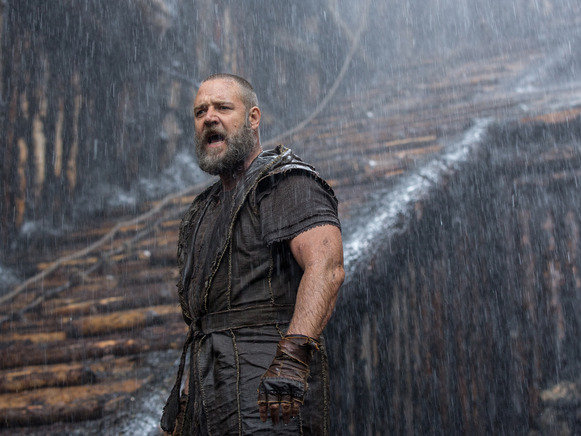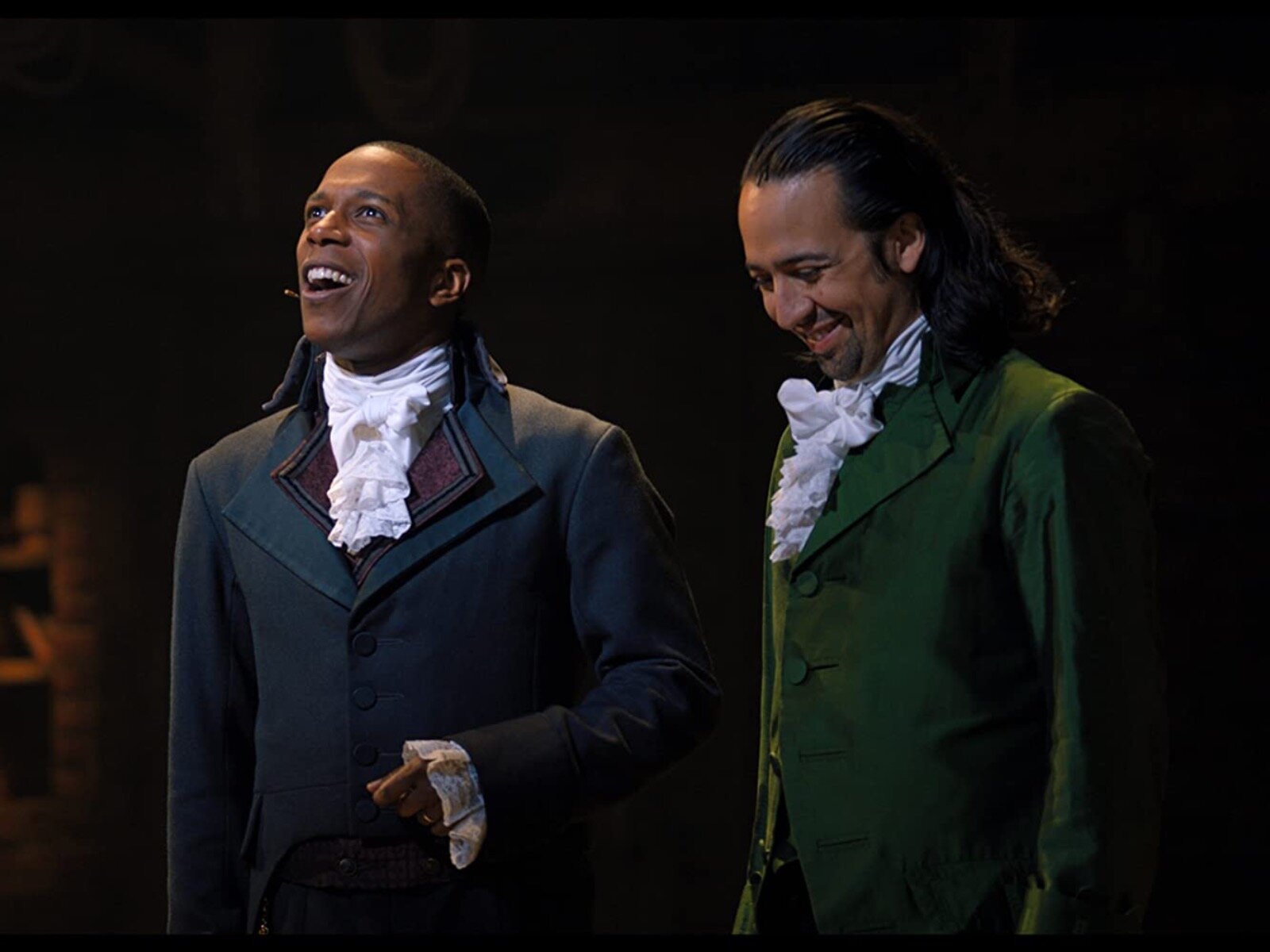Ever since 2008’s surprise modest hit "Fireproof" – and even further back with "The Passion of the Christ" – Christian-themed films have slowly made more and more of an impact at the local Cineplex.
The first quarter of 2014 has not only already seen two such films – "Son of God" and "God’s Not Dead," with "Heaven Is for Real" soon on the way – but seen them thrive at the box office. In the case of the former film, Jesus Christ so far has successfully outgrossed Jack Ryan, Jesse Pinkman and Arnold Schwarzenegger this year.
While they’ve managed success economically, however, artistically or cinematically has been a different story. Most of this recent Christian film flock has either consisted of lifeless recreations of classic Biblical stories with all of the artistic creativity, imagination, insight and inspiration of a sleepy 5:30 a.m. Sunday School class or flatly filmed, earnest-but-self-congratulatory glorified sermons that reach no further than preaching to the choir.
And then there’s "Noah," which fits into neither of those categories, mainly because it fits into no categories whatsoever.
Darren Aronofsky’s mildly controversial, wildly audacious interpretation of the famous Old Testament tale takes the story in some interesting, unexpected and challenging new directions. Predictably, some have responded to the film with hostility. Its goal, however, is not to discredit or invalidate one’s faith or its biblical source material. Instead, it is to find new questions and perspectives, transforming the ancient and often simplistic tale into one that feels strikingly relevant and human.
The final result, while sometimes uneven, is endlessly fascinating, an occasionally breathtaking big-budget spectacle that lodges itself in a viewer’s brain tissues and refuses to budge well after the credits roll. It’s a complicated complexity rare for a Christian film, much less for any typical $125 million Hollywood production.
Aronofsky’s retelling takes place in a vision of civilization before civilization. It’s a world not far from its own creation. Rocks in the ground are still glowing, burning embers from Earth’s formation, and the sky, even in the day, is unusually filled with the stars of a still forming universe. Yet it is already deteriorating. The industrialized cities of Cain have turned the land into a grey, rocky wasteland, and their rulers and citizens have a brutal, lawless immorality to match their rotting world.
Noah (Russell Crowe) – the planet’s first environmentalist – is one of the few men trying to live decently, tending to the Earth, its animals and his family (complete with a very good Jennifer Connelly, Emma Watson and Logan Lerman). After a few cryptic but chillingly clear visions sent from The Creator, Noah sets himself and his small clan on a new mission: They are to build an ark for themselves and the animals, as The Creator plans to flood the planet, washing away mankind’s corruption in order to start anew.
So far, so scriptural. However, the rest of man – led by their vicious self-proclaimed king Tubal-cain (a menacing Ray Winstone) – soon finds out about Noah’s ark and are less than willing to be washed out of existence without a fight.
Also: rock monsters. Yes, there are crumbling, multi-armed rock monsters called The Watchers, namely voiced by the fittingly gravelly Nick Nolte. To be fair, they’re actually fallen angels, condemned and melded to the Earth by The Creator after trying to help mankind post-Adam and Eve’s betrayal in the garden. In the film, they help Noah build the ark and defend it from Tubal-cain’s armies.
Now, it’s been a while since I’ve read the good book closely, but I think I’d remember a part where ancestors of the Rock Biter from "The Neverending Story" give Noah a helping hand (though they do have origins in the non-canonical Book of Enoch).
These creatures, along with some hints of magic with a glowing snakeskin relic and Noah’s wise magician grandfather (Anthony Hopkins), are easily the most daringly fantastical part of Aronofsky and co-writer Ari Handel’s script. Despite being creatively designed and animated, these elements are also, unfortunately, the most underdeveloped, making them an awkward fit in the story.
Luckily, the rest of Aronofsky’s vision for "Noah" comes together with enthralling results. When most kids are taught the story of Noah, it’s a cheery story, one with the charming concept of a man building a boat for all of the animals on Earth and a triumphant ending. There’s even a happy rainbow.
The odd, amusingly peculiar details have overshadowed the immensely disturbing, dark core concept: This is a story about the greatest mass murder in mankind’s history. It is a tale about mankind’s greatest failure, one so great that the only solution their all-loving God could surmise was to start over again in deadly fashion.
Aronofsky places the sad, dark reality of the task and puts in center stage, considering not only the death toll, but the emotional and spiritual toll such a dark mission could weigh on the psyche of the man assigned to be God’s accomplice.
In one of the film’s most chilling moments, Noah sits stolidly in the shadowy, flame-lit ark as the screams of men, women and children pierce through the punishing rain and waves. His family pleads for him to help somehow, but he just sits there. This is, after all, the plan. And that plan, Noah realizes near the midway point of the film, may not include Noah and his family either. After all, they are flawed, capable of sin and easily corrupted.
Does man deserve to survive? It's a complicated question, approached with appropriate complexity by "Noah" and Aronofsky. As the film wears on, soon Noah becomes the story's greatest villain, a mad maniacal prophet whose faith and interpretation of The Creator's distant, vague demands leaves no room for mankind.
Meanwhile, the once obvious villain of the film – Tubal-cain, stowed away and hiding on the ark – is making arguments that ... don't quite sound wrong. Before the big mid-movie battle sequence, he gives a speech to his troops that wouldn't sound out of place in something like "Lord of the Rings," announcing that men control their own fate. After all, they are fighting not to conquer, but to merely survive. Later, he notes – in between bites of an unfortunate, soon-to-be-extinct animal on the ark – that man was created in God's image; why should they not have dominion over the animals? Wasn't that why they were made?
Both men – interpreting their opposing beliefs to disturbed extremes, making the occasionally "Apocalypse Now"-like hellish lighting on the ark fitting – ask The Creator for answers, but in both cases they are left unheard. Or at least without a clear answer.
The end result is a harrowing story – almost closer to the troubling biblical tale of Abraham's almost sacrifice of his son Isaac than the more traditionally simplistic tale of Noah – told with an unpredictable sense of uneasy tension as well as a challenging moral and spiritual ambiguity. It's a tale of mythical levels brought to immediate human scale.
That human scale is aided by Crowe, who delivers his finest performance in years. He is the film's rock, able to convincingly move from conflicted family man to a man possessed by his mission to the point of insanity. And yet even in that transformation, we see the man who's simply trying to do right by everything and everyone. The weight of the world is literally on Noah's shoulders, and it's felt throughout Crowe's performance.
It's also mesmerizingly told, which should've been expected with Aronofsky's name attached. When the first trailers began to emerge for "Noah," many worried that it was the director selling out, making the kind of soulless, generic, CG-heavy blockbuster that's the polar opposite of his previous works ("Requiem for a Dream," "Black Swan").
Instead, it's just a showcase for his visual imagination. Working with his usual cinematographer Matthew Libatique (as well as his go-to composer Clint Mansell, whose captures the film's mystic grandness and horror), "Noah" has a beautiful naturalism and texture. The effects that once worried fans are used to fascinating effect here, creating images both captivating and horrifying – a mountain covered in people clinging for dear life; the Earth seen from God's perspective, its usual green and blue shades suffocated by endless swirling hurricanes.
He also returns to the rapid-fire, meaning-rich montage editing style he used in the past, with quick shots of the creation story and the killing of Abel used to lead into Noah's visions much like how the famous kinetic editing of "Requiem for a Dream" brought viewers into the characters' highs. Later on, he uses a similar technique during a complete telling of the creation story. When it gets to Abel's murder, it's blazingly intercut with images of killing and war throughout man's history, showing that Noah is perhaps right: man is doomed to fail again.
For the most part – outside of a couple of action sequences that, while exhilaratingly executed, feel like out-of-place excitement – "Noah" is not Aronofsky conforming to a studio. It’s a studio conforming and bending to Aronofsky, allowing him to make a complicated and complex spectacle that asks the kind of questions and brings up the kind of drama most $100 million movies wouldn’t dare. In a film filled with miracles, the greatest miracle of all might be that "Noah" exists in the first place.
And much like our lone survivors in the end, even with its flaws, it proves it is worthy of existence.
As much as it is a gigantic cliché to say that one has always had a passion for film, Matt Mueller has always had a passion for film. Whether it was bringing in the latest movie reviews for his first grade show-and-tell or writing film reviews for the St. Norbert College Times as a high school student, Matt is way too obsessed with movies for his own good.
When he's not writing about the latest blockbuster or talking much too glowingly about "Piranha 3D," Matt can probably be found watching literally any sport (minus cricket) or working at - get this - a local movie theater. Or watching a movie. Yeah, he's probably watching a movie.







